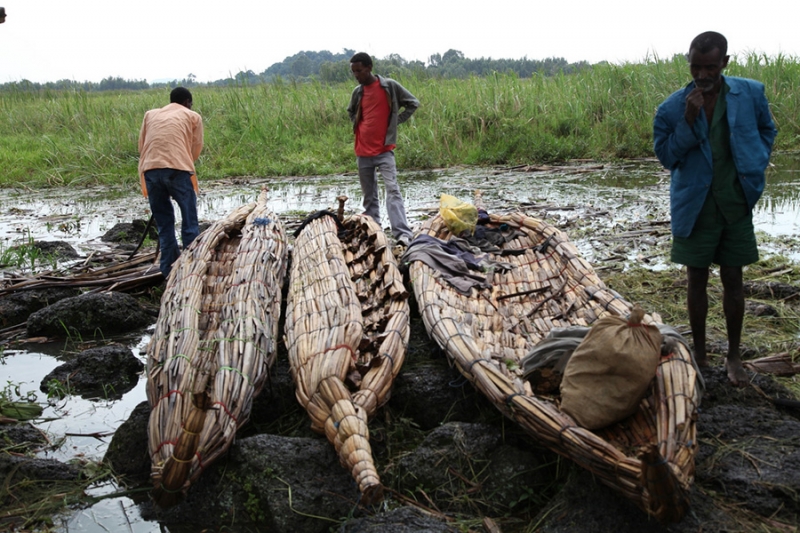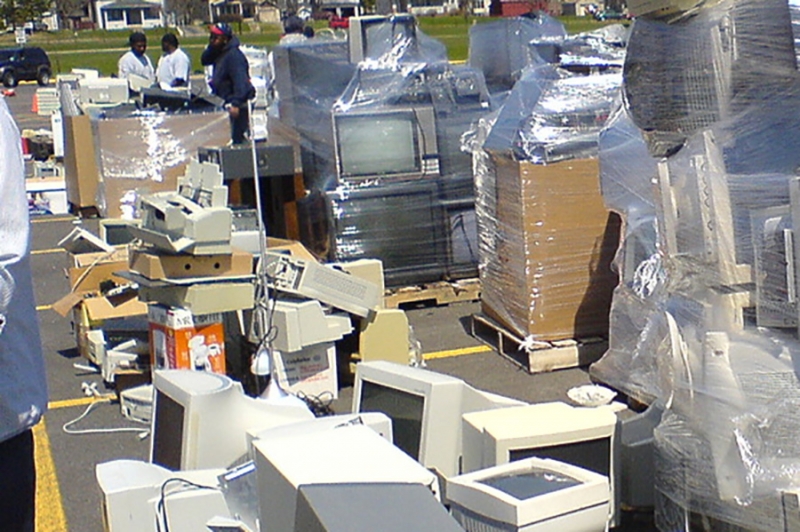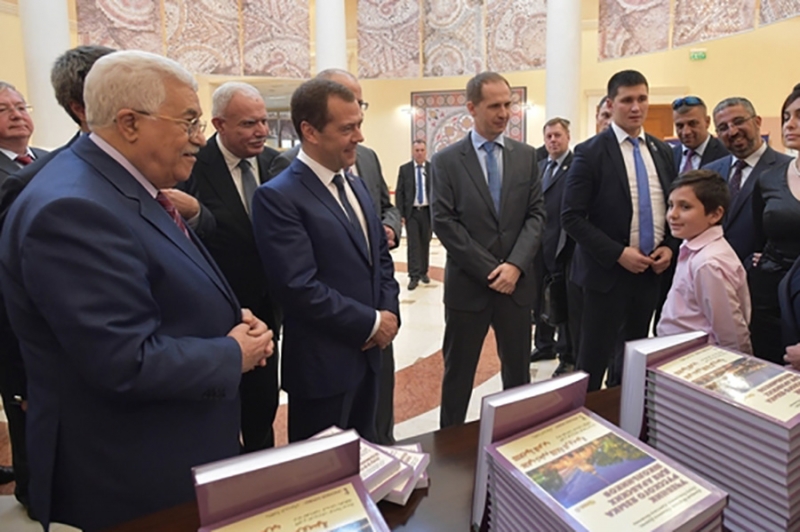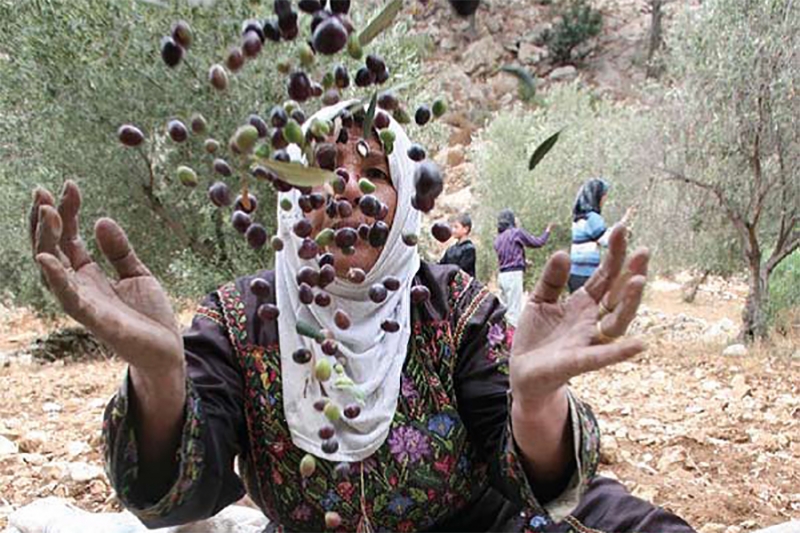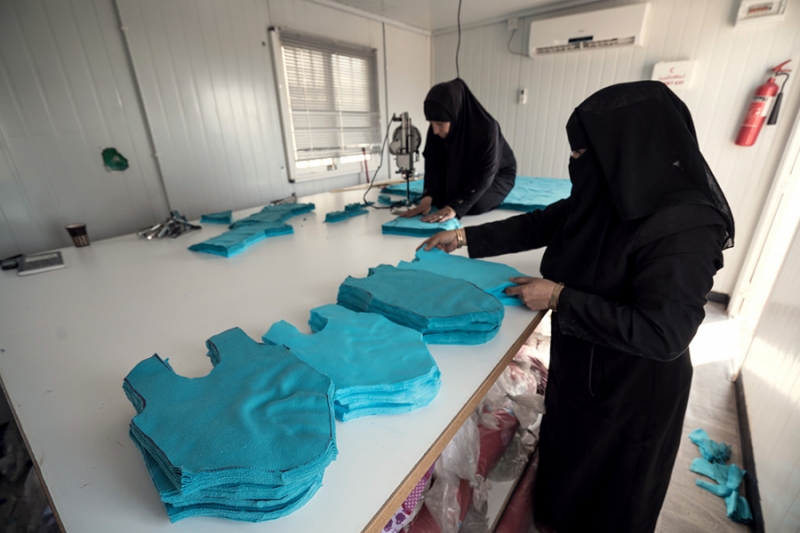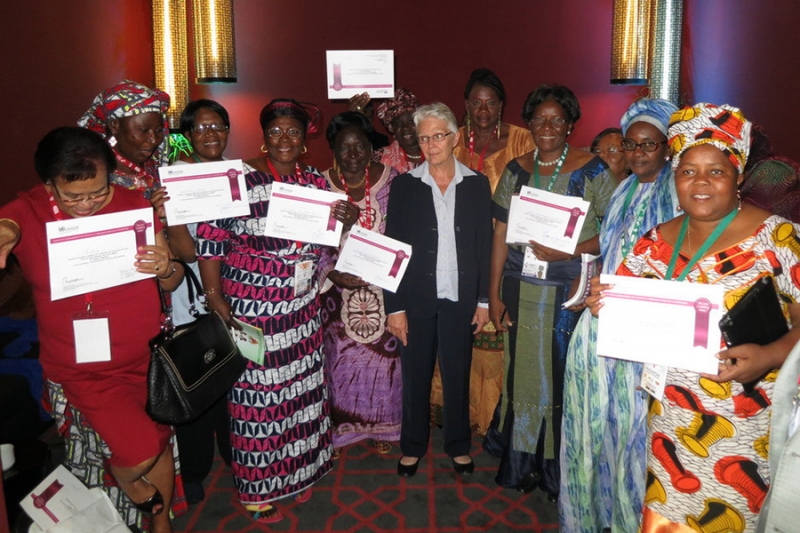Geographic focus: Nile Basin
Countries: Sudan, Tanzania, Rwanda, Burundi, D. R. Congo, Kenya, Uganda, Ethiopia, Egypt and South Sudan
Thematic focus areas supported by the mechanism: Capacity Building activities to support Nile water professionals in different areas of the water sectors applying collaborative research and networking mechanisms.
The Nile Basin Capacity Building Network for River Engineering (NBCBN-RE) was initiated in the year 2000 to promote cooperation among the Nile basin countries, to strengthen the capacity of water professionals and to create an environment in which professionals from the water sector sharing the same river basin would have the possibility to exchange ideas, their best practices and lessons learned, through joint applied research on issues of common interest in the field of River Engineering. In January 2002 the NBCBN-RE was officially launched and defined by high-level professional representatives from all the Nile basin countries, who expressed their mission to level the playing field among the member countries and to ensure the free flow, sharing and transferring of information and knowledge. This regional Knowledge Network is fully owned by the Nile basin countries and aims at building the capacity of Water Sector professionals and institutions in the Nile Basin through collaborative research, training and education
Results to Date:
Network of more than 500 professionals (from the Nile basin), 9 nodes and in-country networks, 6 research clusters with 13 active research groups, 36 research reports, key group of high qualified coordinators in collaborative research coordination, Dynamic website with communication platform, Nile Basin knowledge Map, Network monitoring and evaluation system, Periodical Network newsletter and development of the Nile Water Science and Engineering Journal.
Countries that have benefited:
Egypt, Sudan, Kenya, Uganda, Ethiopia, Rwanda, Democratic Republic of the Congo
Web Link: http://www.nbcbn.com/index.php/component/jomtube/video/11.html
Recent Annual Budget USD: 600,000
Total Budget USD: 600,000
Focal Point and Contact:
Dr. Amel M. Azab
NBCBN Manager
Nile Basin capacity Building Network (SEC-office),
Hydraulics Research Institute, NWRC, MWRI
13621, Delta Barrages, Cairo Egypt
Tel: +201003874571
Email: This email address is being protected from spambots. You need JavaScript enabled to view it.
Geographic focus: Bahrain
Thematic focus areas supported by the mechanism:
Establishing microfinance activity within two women-based NGOs, and created an enhanced environment for equitable job creation and sustainable economic growth by increasing the number of NGOs managing microfinance initiative with focus on targeting youth and women entrepreneurs
Steps/stages in practical application of the mechanism:
The Microfinance project (previously Micro-Start) was first initiated in 1999. As a new solution to include productive families into an institutional mechanism, whereby the participating family member becomes an entrepreneur, a new culture in a much more organized manner was developed. NGOs participating in the programme were subject to intense trainings, and manuals were developed to facilitate the process. As a result of almost a decade of support to the line ministry and NGOs, the Bahrain Central Bank of Bahrain has finally added a chapter on (Microfinance) officially regulating the industry. As such, two Microfinance Banks were established based on the availability of such regulation.
Results to Date:
The project, as a mechanism, has been implemented in Bahrain as part of a global UNDP/UNCDF initiative implemented in around twenty five countries worldwide. Through the participating NGOs, the project had reached out on aggregate to more than 7000 clients of which almost 50% or more are women and the same percentage for youth (under 45 years). Also, the two Women-based NGOs have achieved operational selfsufficiency with reasonable PAR indicators.
In an independent “Microfinance Market Research” study conducted on the project, women entrepreneurs accessing loans expressed a major change in their lives; now demanding access to convenient savings products to maintain the real value of their cash savings. Based on interviews with female clients and stories of success, women became more able to decide on their future, benefit their children in terms of food quantity and quality, access to health and education. The empowerment also reached NGOs that offer microcredit; now changed from a simple charity- based organization to a coherent management structure with proper institutional and market image.
UNDP and other Government line ministries in the Kingdom are examining the merits of utilizing the success created through access to Microfinance services for women to use the same venue in working with “Youth” within the age bracket of 15 – 29 years. Although the microfinance project outreach is more than 50% to borrowers under 45 years, the envisioned initiative would concentrate on an upper age bracket of 29 years. With a reconnaissance survey, the initiative should be able to depict in a clear manner the needs and wants of the Bahraini Youth and would blend financial with non-financial and coaching/advisory services needed by youth in building their lives.
Most Recent Annual Budget (USD): 340,000
Total Budget (USD): 730,280
Focal Point and Contact:
Ali Salman Programme Section
UNDP Bahrain - P.O. Box 26814
Manama - Kingdom of Bahrain
Tel: +973 39766366
Email: This email address is being protected from spambots. You need JavaScript enabled to view it.
The mechanism is aimed to solve the problem of waste generated in small and medium-sized municipalities due to lack of a waste collection network and household waste recycling facilities.
The main objective of the establishing MENA network is to:
- Promote local manufacturing by upgrading the expertise and production means of artisans
- Improve the sustainability of household waste treatment in small and medium sized communities
- Improve the socioeconomic situation of a vulnerable segment of the population, while preserving the environment
Key achievements:
- Bring together metalworking artisans and engineers in order to improve their products and to adapt a new machines and equipment for the treatment of household waste
- Provide a small and medium towns by machines and equipment for treatment of household waste to treatment waste centers (young or women entrepreneurs)
- Add value to household waste by pre-treatment for recycling and by composting the biodegradable portion
- Decrease the transport costs by pre-treatment of recyclable portion from collecting points to recycling industry
The mechanism offers for replication:
- Development of the methodology of selecting the metalworking artisans, their supervision and how the collaborative work should be done between artisans and engineers
- Development of set of machines and equipments easy to manufacture locally and adapted to small and medium communities needs and capacities.
Partners: UNIDO, IAV Hassan II (Rabat, Morocco) (Technical assistance), Enda Maghreb (Morocco) (Coordination and monitoring)
Contact details:
IAV Hassan II, Dpt Energy and Machinery
BP 6202, 10101 Rabat, Morocco
BOURARACH El Hassane, Professor, Director of Agricultural Engineering School (IAV Hassan II)
Tel: +212 6 61 07 64 02
Email: This email address is being protected from spambots. You need JavaScript enabled to view it. or This email address is being protected from spambots. You need JavaScript enabled to view it.
Geographic focus: 22 Arab Member States at the League of Arab States
Thematic focus areas supported by the mechanism: Cooperation between Arab member states in the field of Migration and Arab communities abroad.
Web link: http://www.arabexpatriates.org/en/article.asp?pg=1&SecID=34&NewsID=194
Steps/Stages in the practical application of the mechanism:
- The League calls for the ministers meeting –the meeting of high officials before the ministers meeting - the ministers meeting
- Recommendations and conclusions are submitted to the of League of Arab States` Ministerial Council.
- Department of Migration and Arab expatriates prepares a table of the recommendations and the actors responsible for implementation for follow up.
Results to Date:
- Cooperation between the Arab countries in the field of migration and the exchange of knowledge and best practices.
- Encouraging joint Arab activities, in addition to bilateral and joint cooperation in the field of Labour migration.
- Develop a unified Arab strategy to address the issues of migration and Arab communities living abroad.
- Discuss coordination among joint Arab action agencies concerned with immigration, population, development, employment and caring for the migrants.
- Coordination in international and multinational fora related to these issues.
Recent Annual Budget (USD):10,000
Total Budget (USD):10,000
Focal Point and Contact:
Enas El Fergany
Migration and Arab Expatriates Department
League of Arab States, Tahrir Square, Cairo
Tel: +2 01005227676
Email: This email address is being protected from spambots. You need JavaScript enabled to view it.
Tunisia’s revolutionary wave between December 2010 and January 2011 is considered by many as a digital revolution due to the important role that technology and social media played in speeding it up.
Since then, together with progress made in advancing in its democratic transition, Tunisia has also been carrying out some groundbreaking work in terms of Governance statistics. This is the case of a national piloting SDG 16 on Peace and Justice and in developing statistics on Governance. Governance was also considered to be an area that people would like to post comments about in different social media (Twitter, Facebook, blogs). This justified the choice of social media analysis rather than mobile data or other data sources.
The solution thus aimed at measuring and analyzing sentiment towards the different topics covered by the SDG 16 (corruption, human rights, public administration, crime) as a means to monitor these different targets and see to which extent this could provide a value added to other more traditional statistical analysis methods based on household surveys and administrative data.
The project started in July 2015 within the framework of a UNDP cross-regional (Europe and CIS and Arab States) initiative aimed at piloting the use of Big Data for development in cooperation with the Tunisian National Statistics Institute, the main national partner of the initiative.
The results obtained in terms of sentiment analysis towards the problem of corruption showed a correlation with those from a household survey carried out by the National Statistics Institute in October 2014 on Governance, Peace and Democracy (GPD). In effect, both the social media analysis tool and the household survey showed a negative perception of around 70% on corruption during the same period (September-October 2014). This correlation suggests that social media analysis could be an interesting complement to household surveys and administrative data to ensure real-time monitoring and measurement of the SDGs. Analysis is still ongoing in order to see whether this same correlation exists with other targets also covered by the 2014 GPD Survey.
The initiative can easily be replicated with other SDGs and targets, especially if they cover areas that people will tend to post about in public social media (Twitter, public pages in Facebook, blogs). SDG 4 on education and SDG 5 on gender equality could be interesting examples.
The initiative has allowed the National Statistics Institute to become a member of the global task force on Big Data and SDGs. It has also motivated the institution to start planning the set up of an internal unit on Big Data.
Budget: The support received through the Innovation for Development initiative involved both seed funding and in-kind contributions mainly through the expertise of the UNDP colleagues in the Regional Hubs of Amman and Istanbul and Global Pulse.
Partners: National Statistics Institute in Tunisia, UNDP Tunisia, UNDP Innovation Facility, UNDP Amman Regional Hub, UNDP Istanbul Regional Hub, United Nations Global Pulse.
Contact details:
Tunisia
Kamel Abdellaoui, Director, the National Statistics Institute
Phone number: +216 71 28 11 23
Email: This email address is being protected from spambots. You need JavaScript enabled to view it.
Geographic Focus: India
Thematic focus areas supported by the solution:
- Democratic Governance - Access to Information and E-Governance.
- Increase Transparency and Accountability at Local Council Levels.
Development challenge and key achievements:
- The major governance challenge that the Government was facing was lack of social accountability and access to information; thus undermining the accountability of government officials on their public spending, which also undermines the anticorruption efforts.
- It is imperative for any society to advance on socioeconomic and human resources; development would require people’s participation in aspects of development cycle, in which democratic governance is a nucleus in setting-up the premises for achieving development results and ensure value for money.
- Guidelines for Monitoring of National Budget Implementation at districts were prepared and training provided to CSOs/officials.
The comparative advantage of the solution:
- Increasing collection of local revenues for the local councils in 24 districts of the twelve selected governorates.
- Increasing the role of journalists and CSOs in fighting corruption in these selected districts. Based on the South-South cooperation between Yemeni CSOs and MKSS from India, 379 journalists and 600 members from local councils and CSOs were trained in public resources monitoring techniques. Trainees were exposed to Indian experiences including Indian national campaign for people’s rights to information. During the course of the CSO Transparency Project, some of the trained local councils started to implement and monitor budget at local level, which has resulted in conducting investigation of collection of revenues on utilities in some of local councils.
- The main partners being the local councils in 24 districts and CSO organizations and almost 379 journalists in these districts. The intervention has in later stage influence in the formulation of Right to Information Law, which has recently been approved by the Parliament. Fighting corruption is being part of the youth revolution agenda during the Arab Spring in Yemen in 2011.
Lessons Learned:
Start by raising awareness of what you are planning to achieve and its scale of economy. Adaptation of others’ experience, translating it into the local context and applying bottom- up approach, as well as working with identified champions to ensure continuity of change process.
Recent Annual Budget (USD): 200,000
Total Budget (USD): 150,000
Focal Point and Contact:
Walid Baharoon
Governance Team
UNDP San’aa, Yemen
Tel: +967-712222302
Email: This email address is being protected from spambots. You need JavaScript enabled to view it.
Farming remains an important base for the Palestinian society and economy, as many Palestinians in the OPT are dependent on basic food aid provided by the United Nations and on farming families who have been able to retain land. Palestinian farmers are unable either to deliver products to the external markets outside their own communities, or to sell their products above the cost price within their local communities.
The solution is aimed to reduce vulnerability of local communities through enhancing food security and building local capacities, including rural women. The idea was born in 2010 when a group of farmers gathered to market the village's olive oil. The Union Aid Abroad-APHEDA has developed the solution and partnered with the MA`AN Development Centre, a local Palestinian agency working in two rural areas - the Tulkarem area in the northern West Bank, and Khan Younis area in the southern Gaza Strip to implement it with the support of the Australian Government (AusAID).
Kufr Abboush one of the targeted 7 villages, which have been identified as the areas of extreme poverty and food insecurity, and have suffered from the conflict-related damage to infrastructure and associated social impacts, and loss of land and livelihoods. Kufr Abboush was among the most productive olive oil-producers in villages in the northern part of the West Bank, producing more than 150 tons of olive oil on the area of more than 10,000 dunams (dunam is a unit of area measure used in the Middle East to measure land, 1 acre = 4.046 dunums ), but the whole village was not producing a single kilogram of organic and extra-virgin olive oil. Farmers needed to ensure better quality of products to sell at a high price and maximize profits.
One cooperative started its activities with ten farmers and now has 22 farmers, including six active women members. The cooperative members enhanced their capacity through:
- Trainings on better harvesting and storage techniques for the olive oil;
- Trainings on new organic methods to fight the olive fly and ein attawous (leaf disease) infection which affects the quality and quantity of the olive oil; and
- Composting and environmental workshops.
In a short time, the cooperative has made tremendous advances, the outcome of the solutions enabled the farmers to produce more than 10 tons of the extra-virgin and organic olive oil last year, and bigger amount is expected in 2015.
The solution constituted on collective efforts and support in addressing the cooperative members` needs. To be more efficient and effective the cooperative organizes olive-harvesting in groups of 60-65 farmers (members of the cooperative including other farmers from neighboring villages). The cooperative supports local rural livelihoods not only through trainings but also through identifying the current and future needs and problems of farmers.. For example, the farmers are keen to buy olive presses and packaging machines to process the olive oil locally and to market and export it.
Budget: US$ 10,000 per one cooperative.
Contact:
Mr. Ahmad Bushnaq, Head of the new Kufr Abboush Cooperative
Ramallah-Nablus Street
Tel : +970 2 2418999
Fax : +970 2 2418998
Mobile : +970 59979396
The model of Sudanese for Knowledge Transfer through Expatriate Nationals (SPaKTEN) it is part of the solutions that applied in many developing countries including Sudan. The main purposes is to Transfer of knowledge and skills to home country through experts and qualified expatriate. The model was internationally introduced by UNDP to reduce the adverse effects of the u201cBrain-Drainu201d phenomenon.
The Secretariat of the Sudanese Working Abroad (SSWA) have many initiatives with successful solutions the Secretariat actively works among the Sudanese diaspora and achieved various successful projects, owned by the national diaspora and the secretariat:
- University of Expatriates (Exchanges of solutions for the challenges in the region and migration studies etc...)
- Six private companies established and operating owned by expatriates in the fields of transport, money exchange, financial services and Investment Company.
- The transport Company has owned a passenger vessel to facilitate the transportation of Expatriates from Saudi Arabia and the Gulf states during the bottleneck in transportation.
- Mining and Small industries companies.
More importantly, there is an excellent experience already operating under the titleu201d National partnership for the transfer of knowledge through Expatriates National Sudanese Partnership for Transfer of Knowledge through Expatriates National (SPaKTEN) is a national program works under the umbrella of the Secretariat of the Sudanese Working Abroad (SSWA), within its general mandate for the welfare of the nation, to recruits highly skilled expatriate Sudanese professionals to transfer their acquired experience to the demanding Sudanese stakeholder through;
- Serving as short term advisors,
- Providing technical expertise and Offering policy advice and
- research to different Sudanese authorities, ministries, universities and other institutions.
The solutions is based on Mobilization of skills of female and male Sudanese National Expatriates and experts living abroad, volunteering to return home of short periods of time to share the expertise they have gained abroad with research, academic, training, public or private institutes.
The program organizes two medical convoys units each year, the unit is made up of ten national volunteers doctors , the convoys visited towns within the most needy states in the country ,based on the towns and bring villages surrounding ,with an estimated treated population of around 5000 patients /convoy ,twice a year an average of 10,000 people/year. The convoy provide medical consulting services, medical treatment and in addition to surgical operations. All medical services, drugs and consulting are free, with the support of SPaKTEN, donation and from the Federal Ministry of Health.
The program also includes People with Special Needs, support in term of equipment and tools relevant to people with disabilities. The program has trained 50 midwives from the far north state in Sudan, North State and supported them with medical bag contained a package of medical tools.
This model create significant shifts in changing the perceptions and traditional practices in the country, it also encouraged catalyzing and mobilization of national expertise working abroad to share their experiences and bring the knowledge and skills inside the country. The programme mobilized annually more than 30 national doctors working abroad to visit the country and provide their experiences, knowledge and medical consultancy and treatment for more than 10,000 people with low cost. The programme established two strategic partnership in the health sector between the Association of Sudanese Doctors working in British and Ireland and the Secretariat of Sudanese Working Abroad. The second partnership with the Sudanese working in the Netherlands, the Temporary Return of Qualified Nationals - TRQN in the Netherlands and the Secretariat of Sudanese Working Abroad. This partnerships trained 50 midwiferies in the far North State where such services is badly needed, the midwiferies in addition to the training by professional doctors equipped with 50 bags contained of package of medical kits The solutions can be replicated in countries with conflict or post-conflict where are basic needs such, as health ,education and capacity gap is exist and prevailed as top priority and unfortunately overlooked du to other priorities related to the conflict. That need such partnerships and mobilization of the national expert working abroad. The most people who suffer are the people living in remote area, where such programme can access these areas.
Budget: The cost of two medical convoys cost US$ 60,000 (US$ 1500/one doctor for 15 days x 40 doctors). All doctors are national working abroad coming at their own cost and accommodation, the project will only cover the travel and accommodation out the capital.
Contact details:
Sudan Address:
Secretariat of Sudanese Working Abroad
Manager Ms. Seham A.Elbasheer
Tel: +249910396609
Email: This email address is being protected from spambots. You need JavaScript enabled to view it.
The initiative was designed as a multi-country-pilot initiative aiming to economically and socially empower women living and/or affected by Human Immunity Virus (HIV) in the Arab States through micro-lending based Income Generating Activities (IGAs), Leadership and Vocational Training.
The Knowledge Management Facility (KMF) is a knowledge sharing platform. It aims at organizing thematic and global workshops to share experience, lessons learnt and good practices on youth employment and migration across national partners including representatives of government and civil society, at national and local levels, and the participating UN agencies.
It is a instrument to support the implementation of the UN joint programmes through the thematic window on youth, employment and migration (YEM) of the UNDP-Spain Millennium Development Goals Achievement Fund (MDG-F) that was launched in August 2007. The YEM thematic window consists of joint programmes being implemented in countries in Africa, Asia, South-East Europe and Latin America.
It also aims at supporting the collection and dissemination of data, information and tools generated by the joint programmes as well as conducting research and studies on topics of common interest to the joint programmes.
The Knowledge Management Facility (KMF) has contributed to capacity building of policy makers, adaptation of national programmes of countries in the Global South on the effective implementation of policies on youth employment and migration, and draw on the lessons learnt from the different JPs.
To foster a community of practice among the joint programmes, the KMF organized two training workshops, one in Budapest (Hungary) from 30 March to 1 April, 2011 and another in Lima (Peru) from 13 to 15 April, 2011 that have raised the interest from some participants to further cooperate with their peer countries and learn from their experience. During these workshops participants discussed the most challenging areas of work of the programmes and the lessons learned, and shared effective policy instruments and tools. In addition, a global workshop of the youth employment and migration window of the MDG-F was organized in Punta Cana (Dominican Republic) from 29 to 31 October 2012. It conveyed representatives of national teams from Albania, Bosnia and Herzegovina, China, Costa Rica, Ecuador, Honduras, Nicaragua, Paraguay, Peru, the Philippines, Serbia, Tunisia and Turkey.
Due to the KMF a cooperation agreement between Ecuador and Peru has been signed in the field of youth migration. Another example of the South-South cooperation in the framework of the KMF is the exchange between Albania and Tunisia on youth employment policies and practices and application of stakeholder coordination methodologies.
Partners: ILO, national and local governments
Contact details:
Gianni Rosas, Coordinator of the ILO Youth Employment Programme
Tel: +41 22 799 7019
Email: This email address is being protected from spambots. You need JavaScript enabled to view it.
Geographic focus: the Arab States
Thematic focus areas the mechanism:
Initiatives to promote information-sharing, dialogue and cooperation between governments and regional organizations on technical assistance and capacity building initiatives related to migration management, including labour migration and human development, migrant assistance, and border management.
Steps/stages in practical application of the mechanism:
Through programming initiatives as well as partnerships with regional organizations, including the League of Arab States and the Arab Labour Organization (ALO), the RO supports South-South cooperation and dialogue both on a bilateral and multilateral basis on key migrationrelated issues impacting the region, such as irregular migration, smuggling and trafficking in persons, labour migration, migration and development, and forced displacement. Activities undertaken by the RO, in cooperation with country offices and governments in the region, aim to promote synergies and cross-fertilization at the policy and programmatic levels, with a view to ensuring a coordinated and consistent approach at the intra- and inter-regional level, that takes into account best practices and lessons learnt identified at the country level in the region or beyond.
Results to date:
- Coordinated a workshop on intra-regional labour mobility, in cooperation with the ALO
- Developed a framework for dialogue and roundtable discussions on labour migration between Libya, Egypt, and Tunisia (roundtables to be conducted in 2013)
- Developed training modules tailored to the region to support knowledge and cooperation on migration and development (trainings to be conducted in 2013)
- Worked with the League of Arab States (LAS) on the development of research relating to the engagement of Arab expatriates in the post-Arab Spring context
- Conducted a meeting with the LAS, Member States, and relevant Arab expatriate representatives on the role of Arab expatriate health professionals in developing the health sectors of Arab states (December 2012)
- Facilitated exchange of experience and expertise between relevant governments and civil society in the region to respond to the challenges of transit migration. (A handbook is being developed to assist policy-makers and practitioners develop and implement assisted voluntary return and reintegration mechanisms).
- Facilitated exchange of experience and expertise to protect exploited and trafficked migrants, including study tours within the region to promote best practices on issues such as legislative development, shelter management, provision of direct assistance.
Currently, a regional project covering Libya, Tunisia, and Egypt is supporting dialogue and cooperation between governments in relation to border management and labour migration. IOM is also working with the LAS and UNESCWA to support regional dialogue on migration and development ahead of the UN High Level Dialogue on International Migration and Development in 2013. IOM is also engaged in a project that includes Egypt, Tunisia, Morocco, and Iraq, to enhance knowledge and capacity in migration and development issues and programming.
Most Recent Annual Budget (USD): 211 M- (2011)
Focal Point and Contact:
Mathieu Luciano
Regional Liaison and Policy Officer
IOM Regional Office for the Middle East and North Africa
47C Abu El Feda Street, Zamalek, Cairo, Egypt
Tel: +20 1016255500
Email: This email address is being protected from spambots. You need JavaScript enabled to view it.
The initiative is aimed to develop potential of small-scale enterprises led by women to raise household incomes, improve livelihoods, and strengthen the independence of women in the dryland regions of southern Jordan through tapping traditional knowledge and the sustainable use of local resources.
The initiative has been implemented in three regions - Karak, Tafilah, and Ma`an - which suffer from high rates of household poverty and a range of debilitating environmental constraints: high rates of erosion, extreme water scarcity, and low annual precipitation rarely exceeding 300 mm/year and poor infrastructure which limits access and income generated from agriculture.
The initiative is based on the four pillars:
- Participatory approaches: including women in the project design helps to effectively identify needs, the availability of resources, and existing expertise and knowledge;
- Initial assessments: household economic surveys help to prioritize the target beneficiaries; marketing assessments help to identify potential customers and markets;
- Women associations: act as a liaison with government officials, providing women with a voice and helping to extend training and secure funding for beneficiaries;
- On-going support: ensure that assistance and advice is provided after enterprises are initiated to ensure long-term sustainability and benefits.
Program activities include food processing, dairy and pickle production, and the harvesting of mushrooms which are creating new economic opportunities for women who were previously marginalized and unable to contribute to household income.
Empowering women to manage small-scale income-generating enterprises has increased their independence, raising their status and helping them to more effectively participate in decision-making - at the community and household level. These positive developments are being sustained through trainings for 1300 women.
Approximately 400 women have initiated income-generating activities, and investments in businesses and enterprises exceed 1.5 million USD. Initial indicators suggest that women are already experiencing moderate returns on their investments. For example, an initial investment of 500 JD to finance bakeries is generating, on average, around 200 Jordanian Dinars (JD) per month. After loan repayments and other costs have been taken into account, female bakers can expect a net profit of up to 88 JD.
Partners: IFAD, ARMP II and training centres in universities and agricultural credit cooperatives
Contact details:
Jordan
Mamoon Al Adaileh,
Ministry of Agriculture
ARMPII - SLM officer
Tel: 00962799059149
Fax: 0096232322875
Email: This email address is being protected from spambots. You need JavaScript enabled to view it.
Geographic Focus: Municipality of Oujda, Morocco, Municipality of Malaga, Spain and Municipality of Kaedi, Mauritania
Thematic focus areas supported by the solution:
Democratic governance: access to information and e-governance
Development challenge and key achievements:
- Not all departments of Chefchaouen were computerized, hindering the efficiency of public services' delivery to citizens.
- Within the framework of the National Strategy for Information Society and Digital Economy and as part of its effort to expand the benefits of ICT to the regions, the Government of Morocco engaged ISI@MED technical support through ART-UNDP in Morocco, to design and implement a programme to improve public administration and services' delivery to citizens. At the same time, the ICT4D project fell within the priority of e-Governance and Decentralization of the Regional Strategic Guidelines: Support the modernization of public administration through computerizationed.
- Computerization of Chefchaouen's critical departments; software development for the municipality`s main work streams, local network installation, registry and records management installation, training of all administrators and users of the applications.
- Scaling-up of this local ICT solution from Oujda, Morocco, where it was initially developed to Chefchaouen, Morocco, and then to Kauedi, Mauritania, with the technical and financial support of Malaga through the ART-ISI@MED framework.
The comparative advantage of the solution:
- Comparative advantage of the solution / innovative elements / replicability/ scaling-up:
- Having local authorities in the driver`s seat for designing the solutions to their local development needs and plans.
- Use of ICT in local public administration as a means to support governance and bring government closer to the needs of the citizens in terms of efficiency, quality and transparency.
- The added value of North-South-South Triangular Cooperation: The support offered by the Municipality of Malaga focuses on building local capacities and fostering the role that local partners play as determinant development actors.
Once the ICT knowledge of the Municipality of Oujda, Morocco, was reinforced as part of this partnership, it was decided to be transferred through these newly-strengthened capacities to the Municipality of Chefchaouen, Morocco, and then to the Municipality of Kaedi in Mauritania.
In this way, decentralized cooperation partners not only supported a particular strategy for the benefit of a specific Moroccan community, but also build capacities so that the expertise can then be passed along to other municipalities in the same country and other cities in countries within the region.
Main partners:
- Local: Municipalities of Oujda and Chefchaouen in Morocco, Municipality of Kaedi in Mauritania;
- National: Ministry of Interior - General Directorate of Local Communities (DGCL), Morocco and Ministry of Interior and Decentralization (MIDEC) and Ministry of Employment, Professional training and New Technologies, Mauritania;
- International: Municipality of Malaga, Spain and UNDP ART Geneva.
Impact:
More than 2,000 citizens benefited from the implementation of the ICT solutions in Chefchaouen, and more than 30, 000 will benefit in Kaedi
Lessons Learned:
Important to remember in future replication elsewhere:
- Aligning international cooperation interventions to local development needs and plans as formulated in the Strategic Guidelines documents
- Developing users` capacities by fostering the adoption, use and integration of the new information and communications technologies for development
- Assuring project viability after initial funding allocations (e.g. by including the maintenance costs in regular planning)
- Foreseeing project sustainability (e.g. beyond the current political administration)
- Offering constant follow-up to monitor whether the project has been successfully implemented and is being meaningfully used
- Using ICT4D cannot be done by implementing one-shot projects. It is a complex process, being continuously enhanced. Projects evolve to respond as local technological capacities are developed and ICTs adapted to the local context.
Recent Annual Budget (USD): 81,000
Total Budget (USD): 134,000
Focal Point and Contact:
Arturo Rodriguez Menendez
International Relations Coordinator
Calle Munoz Cervan, no 3, Edificio 4 del complejo de Tabacalera Malaga Municipality,
Malaga Spain
Tel: +34629505467
Email: This email address is being protected from spambots. You need JavaScript enabled to view it.








